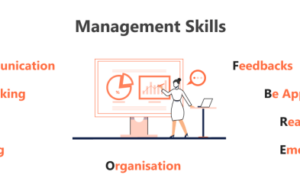Career Advancement Tips: Ready to take your career to the next level? Dive into these strategies that will propel you towards success and fulfillment in the professional world.
From setting clear career goals to mastering essential skills, this guide will equip you with the knowledge and tools needed to navigate the competitive landscape of career growth.
Importance of Career Advancement
Career advancement is like leveling up in a video game – it’s essential for your professional growth and development. By climbing the career ladder, you open yourself up to a world of opportunities that can lead to higher job satisfaction, increased earning potential, and overall success in your chosen field.
Higher Job Satisfaction
When you advance in your career, you are often rewarded with more challenging and fulfilling roles that align with your skills and interests. This can lead to a greater sense of accomplishment and job satisfaction, as you tackle new responsibilities and achieve your career goals.
Better Opportunities
Career advancement opens doors to new opportunities that may not have been available to you before. Whether it’s a promotion, a new job offer, or a chance to work on exciting projects, advancing in your career can lead to a brighter future filled with endless possibilities.
Impact on Earning Potential
As you progress in your career, you are likely to see a significant increase in your earning potential. With each promotion or career milestone, you may be eligible for higher salaries, bonuses, and other financial rewards. This can have a positive impact on your overall financial stability and future prospects.
Setting Clear Career Goals
Setting clear career goals is essential for anyone looking to advance in their career. By having specific and achievable goals in mind, individuals can stay focused and motivated on their professional journey. It is important to align these goals with personal values and aspirations to ensure fulfillment and satisfaction in the long run.
Tips for Setting Specific and Achievable Career Goals
- Start by identifying your strengths, weaknesses, interests, and values to determine what you truly want to achieve in your career.
- Set SMART goals – Specific, Measurable, Achievable, Relevant, and Time-bound. This will help you track your progress and stay motivated.
- Break down your long-term goals into smaller, actionable steps to make them more manageable and achievable.
- Seek feedback from mentors or career counselors to gain valuable insights and guidance in setting realistic goals.
Examples of Short-term and Long-term Career Goals, Career Advancement Tips
- Short-term goal: Complete a certification course in your field within the next six months to enhance your skills and qualifications.
- Long-term goal: Obtain a leadership position in your company within the next five years by consistently delivering high-quality work and demonstrating strong leadership abilities.
- Short-term goal: Network with industry professionals and attend at least two networking events per month to expand your professional connections and opportunities.
- Long-term goal: Start your own business in your field of expertise within the next decade to achieve financial independence and professional fulfillment.
Skill Development for Career Growth: Career Advancement Tips

In today’s fast-paced and competitive job market, continuous skill development is essential for advancing one’s career. Employers are constantly looking for candidates who possess a diverse set of skills that can help them stay relevant and adapt to changing industry trends.
In-Demand Skills Across Various Industries
- Digital Marketing: With the rise of online businesses, digital marketing skills such as , social media marketing, and content creation are highly sought after.
- Data Analysis: The ability to interpret and analyze data is crucial in fields like finance, healthcare, and technology.
- Project Management: Project management skills are valuable in almost every industry, as they demonstrate the ability to lead and organize teams effectively.
- Programming Languages: Proficiency in programming languages like Python, Java, and SQL can open up opportunities in software development and IT.
Acquiring New Skills
There are various ways to acquire new skills and enhance your professional development:
- Online Courses: Platforms like Coursera, Udemy, and LinkedIn Learning offer a wide range of courses in different subjects that can be completed at your own pace.
- Workshops and Seminars: Attending workshops and seminars related to your field can provide hands-on experience and networking opportunities.
- Mentorship: Finding a mentor who is experienced in your desired field can help you gain valuable insights and guidance for skill development.
Networking for Career Advancement

Building a strong professional network is essential for advancing in your career. Networking can open up new opportunities, provide valuable insights, and help you stay updated with industry trends. Here are some strategies to help you build and maintain a successful network:
Attend Networking Events and Conferences
- Regularly attend industry-specific networking events and conferences to meet professionals from different organizations.
- Participate in panel discussions, workshops, and seminars to showcase your expertise and connect with like-minded individuals.
- Exchange contact information with new connections and follow up with them after the event to strengthen relationships.
Utilize Online Platforms
- Create profiles on professional networking platforms like LinkedIn to connect with professionals in your field.
- Join industry-related groups and participate in discussions to expand your network and establish your presence.
- Share relevant articles, insights, and updates to position yourself as a knowledgeable and valuable connection.
Maintain Relationships
- Regularly reach out to your network through emails, calls, or coffee meetings to stay in touch and nurture relationships.
- Offer assistance, provide value, and support others in your network to build trust and credibility.
- Keep track of important milestones and achievements of your contacts to congratulate them and show genuine interest in their success.
Overcoming Career Plateaus
When you start feeling stuck in your current job with no room for growth or advancement, you might be experiencing a career plateau. It’s essential to recognize the signs and take action to reignite your professional journey.
Identifying Career Plateaus
- Feeling unmotivated or unchallenged in your role.
- Lack of opportunities for growth or advancement within the company.
- Stagnant salary or position for an extended period.
Strategies for Overcoming Career Plateaus
- Seeking new challenges and responsibilities within your current role.
- Exploring opportunities for professional development and skill enhancement.
- Networking with industry professionals to expand your horizons and potential opportunities.
Importance of Seeking New Challenges
Continuously challenging yourself with new projects or responsibilities can help you avoid stagnation and keep your career on an upward trajectory. Embracing change and seeking growth opportunities are crucial for overcoming career plateaus.
